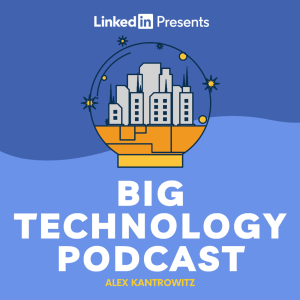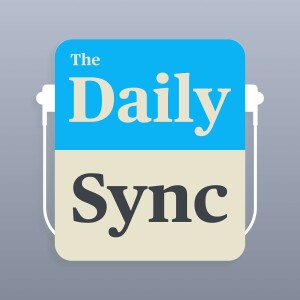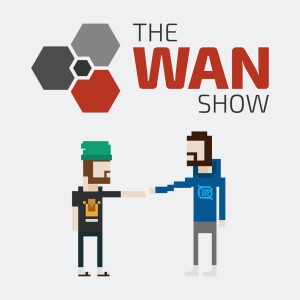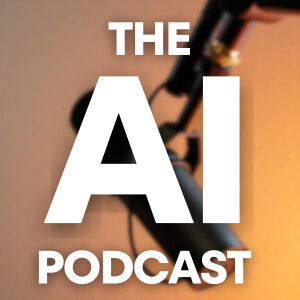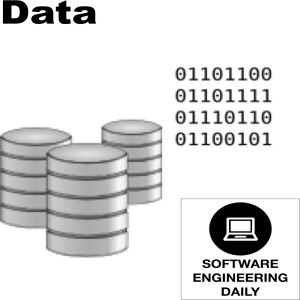

Data Archives - Software Engineering Daily
https://softwareengineeringdaily.com/category/data/feed/Episode List

Chronosphere with Martin Mao
Observability software helps teams to actively monitor and debug their systems, and these tools are increasingly vital in DevOps. However, it’s not uncommon for the volume of observability data to exceed the amount of actual business data. This creates two challenges – how to analyze the large stream of observability data, and how to keep down the compute and storage costs for that data. Chronosphere is a popular observability platform that works by identifying the data that’s actually being used to power dashboards and metrics. It then shows the cost for each segment of data, and allows users to decide if a metric is worth that cost. In this way, technical teams can manage costs by dynamically adjusting which data is analyzed and stored. Martin Mao is the Co-founder and CEO of Chronosphere and he joins the podcast today to talk about the growing challenge of managing observability data, and the design of Chronosphere. This episode is hosted by Lee Atchison. Lee Atchison is a software architect, author, and thought leader on cloud computing and application modernization. His best-selling book, Architecting for Scale (O’Reilly Media), is an essential resource for technical teams looking to maintain high availability and manage risk in their cloud environments. Lee is the host of his podcast, Modern Digital Business, an engaging and informative podcast produced for people looking to build and grow their digital business with the help of modern applications and processes developed for today’s fast-moving business environment. Listen at mdb.fm. Follow Lee at softwarearchitectureinsights.com, and see all his content at leeatchison.com. Please click here to see the transcript for this episode. Sponsorship inquiries: sponsor@softwareengineeringdaily.com The post Chronosphere with Martin Mao appeared first on Software Engineering Daily.

Streamlit with Amanda Kelly
The importance of data teams is undeniable. Most companies today use data to drive decision-making on anything from software feature development to product strategy, hiring and marketing. In some companies data is the product, which can make data teams even more vital. But there’s a common problem – analyzing data is hard and time consuming. Lots of people have questions they want to answer with data, but data teams often don’t have the resources to move quickly. This can create a pernicious effect where organizations stop asking questions about their own data. Amanda Kelly thinks a lot about data and the dynamics of data teams inside organizations. She’s worked at Google X, and on self-driving cars and cybersecurity. Her experiences on data teams inspired her to co-found Streamlit, which is an open source Python library that gives primitives to assemble a data app for rapid data visualization and interaction. Her goal was to accelerate the iteration loop to go from a question to a data-driven answer. Amanda is currently the COO of Streamlit and a Product Director at Snowflake, and she joins us today to talk all about data and how she’s building Streamlit. Sean’s been an academic, startup founder, and Googler. He has published works covering a wide range of topics from information visualization to quantum computing. Currently, Sean is Head of Marketing and Developer Relations at Skyflow and host of the podcast Partially Redacted, a podcast about privacy and security engineering. You can connect with Sean on Twitter @seanfalconer. Please click here to view this show’s transcript. Sponsorship inquiries: sponsor@softwareengineeringdaily.com The post Streamlit with Amanda Kelly appeared first on Software Engineering Daily.

Modern Web Scraping with Erez Naveh
Today it’s estimated there are over 1 billion websites on the internet. Much of this content is optimized to be viewed by human eyes, not consumed by machines. However, creating systems to automatically parse and structure the web greatly extends its utility, and paves the way for innovative solutions and applications. The industry of web scraping has emerged to do just that. However, many websites erect obstacles to hinder web scraping. This has created a new kind of arms race between developers and anti-scraping software. Bright Data has developed some of the most sophisticated consumer tools available to scrape public web data. Erez Naveh is an entrepreneur and former engineer at Meta. He is currently the VP of Product at Bright Data. Erez joins us in this episode to talk about Bright Data’s mission to structure the open web, and the toolkit they’ve developed to make this possible. Paweł is the founder at flat.sociaI the world’s first ‘flatverse’ start-up. Pawel’s background is as a full-stack software engineer with a lean and experimental approach towards product development. With a strong grounding in computing science, he spent the last decade getting early-stage products off the ground – both in startup and corporate settings. Follow Paweł on Twitter, LinkedIn and his personal website – pawel.io. Please click here to view this show’s transcript. Sponsorship inquiries: sponsor@softwareengineeringdaily.com The post Modern Web Scraping with Erez Naveh appeared first on Software Engineering Daily.

Observability with Eduardo Silva
There are hundreds of observability companies out there, and many ways to think about observability, such as application performance monitoring, server monitoring, and tracing. In a production application, multiple tools are often needed to get proper visibility on the application. This creates some challenges. Applications can produce lots of different observatory observability data, but how should the data be routed to the various downstream tools? In addition, how can data be selectively sent to different storage tiers to minimize costs? Calyptia is a service that helps manage observability data from source to destination. Eduardo Silva is the founder and CEO of Calyptia and he joins us in this episode. This episode is hosted by Lee Atchison. Lee Atchison is a software architect, author, and thought leader on cloud computing and application modernization. His best-selling book, Architecting for Scale (O’Reilly Media), is an essential resource for technical teams looking to maintain high availability and manage risk in their cloud environments. Lee is the host of his podcast, Modern Digital Business, an engaging and informative podcast produced for people looking to build and grow their digital business with the help of modern applications and processes developed for today’s fast-moving business environment. Listen at mdb.fm. Follow Lee at softwarearchitectureinsights.com, and see all his content at leeatchison.com. Please click here to view this show’s transcript. Sponsorship inquiries: sponsor@softwareengineeringdaily.com The post Observability with Eduardo Silva appeared first on Software Engineering Daily.

AI and Business Analytics with John Adams
It’s now clear that the adoption of AI will continue to increase, with nearly every industry working to rapidly incorporate it into their systems and applications to provide greater value to their users. Business analytics is a key domain that promises to be radically reshaped by AI. Alembic is an AI platform that integrates web data, product conversion metrics, and social media to guide business decision making. John Adams is the Co-founder and Chief Innovation Officer at Alembic, and he joins the podcast to talk about data and engineering at the company. This episode is hosted by Lee Atchison. Lee Atchison is a software architect, author, and thought leader on cloud computing and application modernization. His best-selling book, Architecting for Scale (O’Reilly Media), is an essential resource for technical teams looking to maintain high availability and manage risk in their cloud environments. Lee is the host of his podcast, Modern Digital Business, an engaging and informative podcast produced for people looking to build and grow their digital business with the help of modern applications and processes developed for today’s fast-moving business environment. Listen at mdb.fm. Follow Lee at softwarearchitectureinsights.com, and see all his content at leeatchison.com. Sponsorship inquiries: sponsor@softwareengineeringdaily.com Please click here to view this show’s transcript. The post AI and business analytics with John Adams appeared first on Software Engineering Daily.
Create Your Podcast In Minutes
- Full-featured podcast site
- Unlimited storage and bandwidth
- Comprehensive podcast stats
- Distribute to Apple Podcasts, Spotify, and more
- Make money with your podcast

